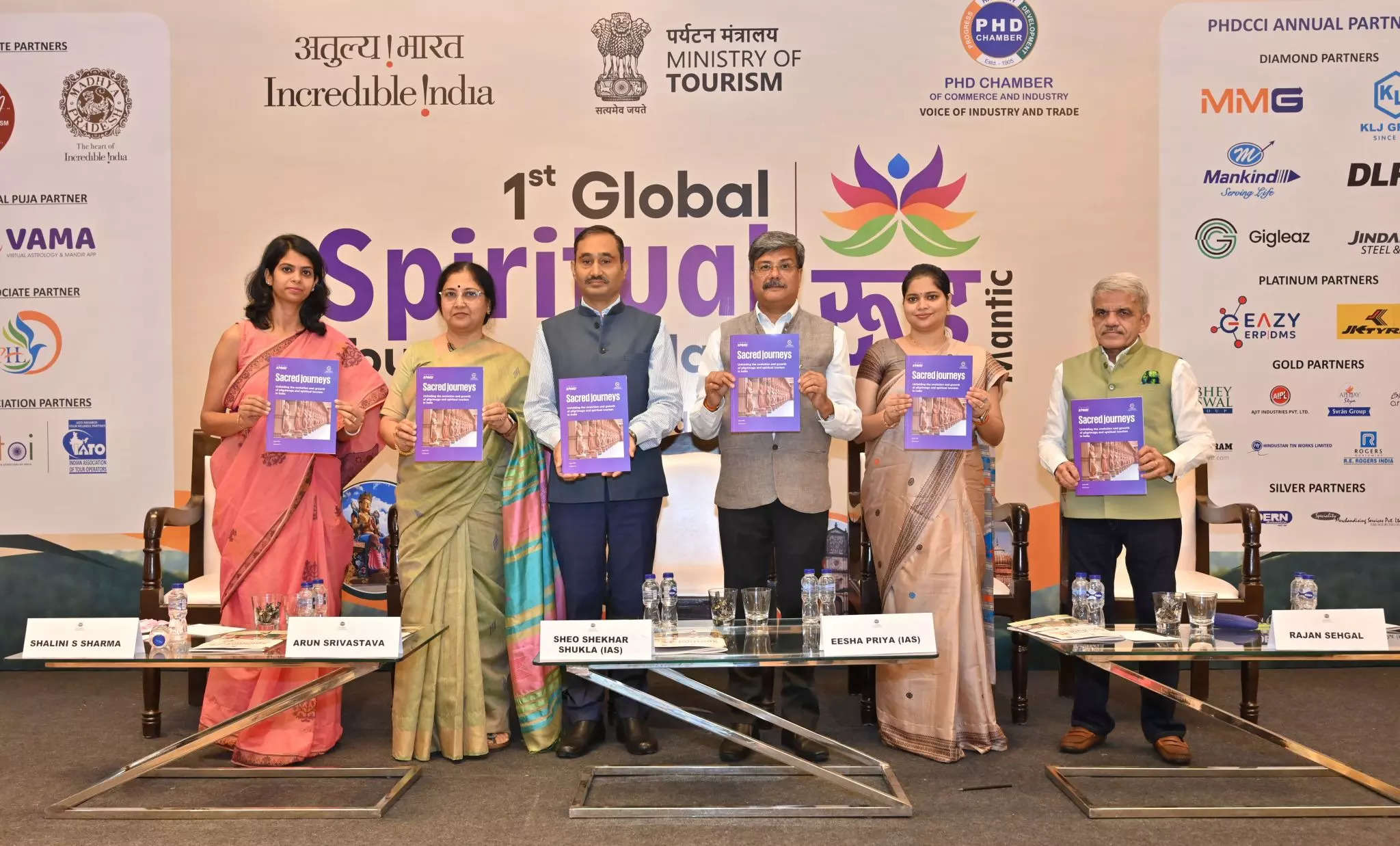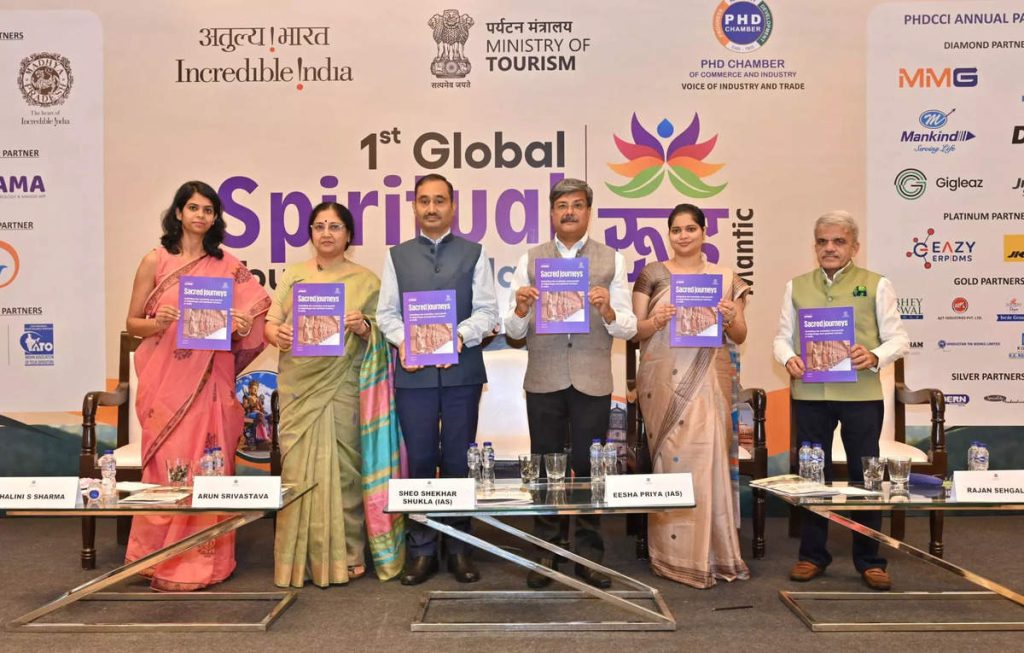
Spiritual tourism in India is emerging as a significant driver of economic growth, as highlighted in a recent report by KPMG in India and PHDCCI. The report, titled “Sacred Journeys: Unfolding the Evolution and Growth of Pilgrimage and Spiritual Tourism in India,” was unveiled at PHDCCI’s 1st Global Spiritual Tourism Conclave, offering insights into the burgeoning sector’s potential, challenges, and the evolving dynamics of pilgrimage tourism.
India, home to over 450,000 religious and cultural heritage sites, is a cornerstone of global spiritual tourism. The report emphasizes the increasing interest in cultural, spiritual, and faith-based travel, positioning India as a pivotal destination for both domestic and international pilgrims. The document outlines the primary motivators behind this trend and its economic implications, while also addressing the challenges and opportunities for destinations catering to spiritual tourists.
Post-pandemic surge in spiritual tourism
The report underscores a notable increase in spiritual tourism following the Covid-19 pandemic. This sector has become a significant employment generator and a driver of economic activity, both globally and within India. The evolution of religious tourism reflects a broader shift toward more meaningful, responsible, and transformative travel experiences, driven by modern travelers’ changing interests and values.
Digital influence and virtual pilgrimages
Modern religious tourism in India is increasingly influenced by digital trends, with technology playing a crucial role in site selection and visitor engagement. The rise of digital pilgrimages and virtual reality experiences during the pandemic, such as live-streamed religious ceremonies and online darshans, has continued to attract spiritual travellers post-pandemic. Additionally, the integration of wellness retreats and Ayurvedic centers into religious tourism offerings is creating a more holistic travel experience for visitors.
Improved connectivity and infrastructure
The report highlights the significant improvements in physical accessibility and supporting infrastructure at spiritual destinations. Enhanced connectivity, along with better travel and accommodation facilities, has made it easier for visitors to plan impromptu trips to spiritual sites. This ease of access is crucial for the continued growth of pilgrimage tourism in India.
KPMG in India and PHDCCI’s report categorize pilgrimage tourism into three distinct segments: explorers, solo travellers, and mass-organized pilgrims. Recognizing the unique needs of these groups is vital for enhancing the pilgrimage experience, managing resources effectively, and promoting sustainable tourism practices.
The report advocates for the holistic development of religious sites, integrating spiritual tourism with adventure and wellness tourism. This approach not only enhances the appeal of religious destinations but also caters to a broader range of travellers seeking immersive and meaningful journeys. The development of lesser-known pilgrimage sites, through research, preservation, and community involvement, is also highlighted as a key strategy for diversifying India’s spiritual tourism offerings.
In addressing the challenges of overcrowding at popular spiritual destinations, the report calls for the adoption of digital tools, including AI and predictive analytics. These technologies, in collaboration with local authorities and religious institutions, can help promote lesser-known sites while establishing sustainable practices for the development of pilgrimage tourism.
Vivek Agarwal, Partner and Lead of Industrial and Infrastructure Development at KPMG in India, emphasized the global recognition of India’s pilgrimage sites and spiritual landmarks. “As the demand for spiritual tourism grows, it is essential to promote comprehensive, holistic, and sustainable development of these sites. This approach will not only enrich the spiritual experiences of pilgrims but also preserve the sanctity of these destinations,” he said.
Aalap Bansal, Partner of Industrial & Infrastructure Development Advisory at KPMG in India, added, “The evolution of pilgrimage and spiritual tourism in India mirrors broader trends in the tourism industry. Digital tools and social media have significantly expanded the reach and accessibility of spiritual practices. However, challenges such as over-tourism and cultural dilution highlight the need for a holistic and sustainable approach to site development.”
The KPMG in India and PHDCCI report concludes that pilgrimage and spiritual tourism present substantial opportunities for economic advancement and cultural exchange in India. By adopting a sustainable and inclusive approach, destinations can leverage these opportunities while safeguarding their cultural and religious heritage for future generations.





